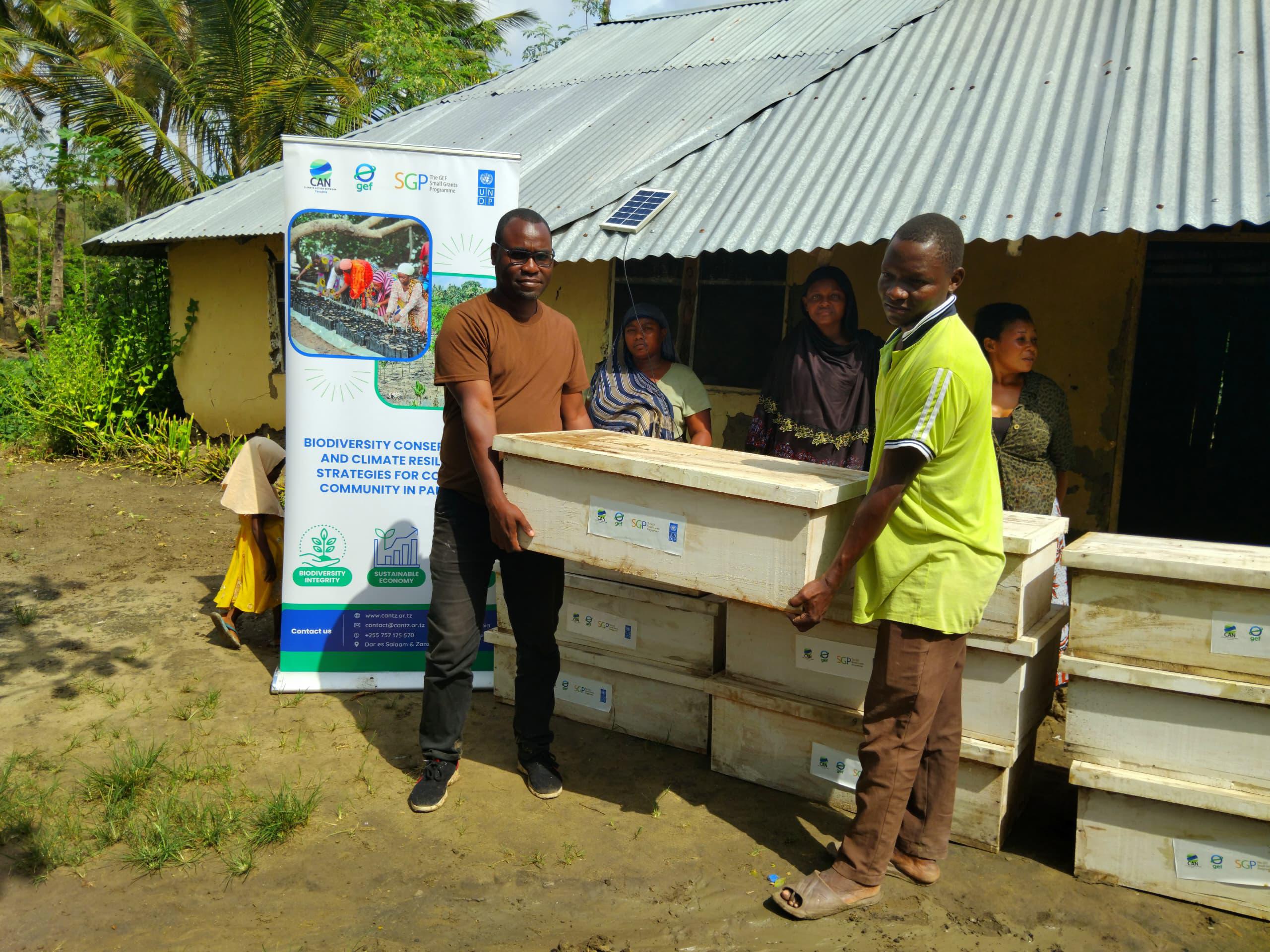
About 75% of flowering plants rely on animal pollinators like bees, which helps maintain biodiversity and ensures the regeneration of forest plants. This is one of the reasons Climate Action Network Tanzania (CAN Tanzania) empowered the communities in Same and Pangani District to install 75 beehives in September and October 2024.
To minimize deforestation activities in the said Districts, beekeeping has been introduced as a sustainable livelihood alternative as part of the broader forest conservation strategy. These beekeeping activities were part of two of our projects. As part of the “Promoting participatory and ambitious National Determined Contribution implementation through nature-based solutions in rural and coastal landscapes of Tanzania” (PRO-NDC-ACT). project. A total of 45 beehives and six pairs of beekeeping protective gear, including smokers, were provided to Vumari, Msaraza and Kigurusimba villages. Each village received 15 beehives, two sets of protective gear, and two smokers. Before handing over the equipment, group members were oriented on selecting good sites for apiary placement, hanging beehives, and conducting inspections.
Furthermore, as part of our “Strengthen and Promote Biodiversity Conservation Capacity and Climate Resilience Strategies of the Coastal Community in Pangani District” project we installed 20 beehives and two pairs of protective gears including smokers in Ushongo Village and 10 beehives were added to Msaraza village in Pangani District. The project is funded by the Global Environment Facility Small Grants Programme (GEF SGP), implemented by the United Nations Development Programme (UNDP). This beekeeping initiative not only provides alternative income sources to local communities but also encourages active participation in forest conservation and local communities will be trained in entrepreneur ship skills and value addition on honey products to be implemented in November 2024.
Practical Training and Resource Provision
In the project areas, beekeeping activities were initiated, including the provision of beehives and inspection equipment to selected group members. Collective ownership and management of beekeeping activities can offer shared resources and knowledge, despite challenges related to ownership, management, and social dynamics. This approach was considered practical and sustainable. After validating and getting custodians for the beekeeping groups through Village Assembly meetings, training sessions were conducted in Vumari, Msaraza, and Kigurusimba villages facilitated by District beekeeping officers alongside experienced local beekeepers. These sessions aimed to equip endorsed members with knowledge and skills on beekeeping and apiary management. Key topics included:
The importance of beekeeping for community development and environmental conservation in relation to agriculture paradox.
1. Bee types and their basic requirements.
2. Benefits, products, and markets associated with beekeeping.
3. Identifying optimal apiary sites, hive hanging, inspections, and honey harvesting.
Community Endorsement and Collective Ownership
The beekeeping groups, comprising Beach Management Units (BMUs) and selected community members and Local Project Implementation Committee (LIPC) participants, were formally validated through Village Council and Village Assembly meetings. This endorsement process ensures that the community members responsible for beekeeping activities are empowered to manage the hives while fostering collective ownership. This model promotes local accountability and strengthens the commitment to forest conservation. CAN Tanzania will continue to work closely with the established groups to monitor the health of the bee colonies and the success of honey production.
This initiative not only provides a valuable source of income for the villagers but also contributes to ecological stability and biodiversity. As the communities manage these beehives sustainably, the benefits of beekeeping activities will extend beyond economic gains to include improved environmental conservation practices across the Same and Pangani districts.
